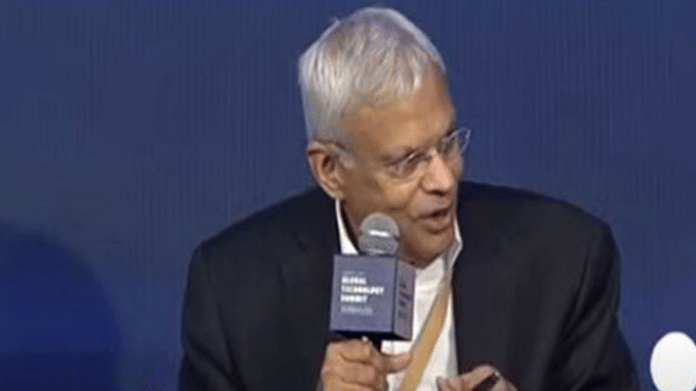The arrest of Ashley J Tellis—long regarded as the intellectual face of India-United States strategic cooperation—has sent shockwaves through Washington and New Delhi’s diplomatic and strategic circles. A senior adviser in the US State Department until recently, Tellis has been charged with holding classified documents and maintaining contacts with Chinese officials. Almost overnight, he has shifted from being a symbol of partnership to a subject of suspicion.
In China, his arrest has sparked online discussions, with users highlighting unease about US strategy and global power dynamics, as well as a perceived downward trajectory in India-US relations.
A Trump-era recalibration?
On the Chinese internet, discussions of Tellis’s arrest stand in contrast to the discourse in India, where his recent writings have had limited resonance. Many Chinese observers interpret Tellis’s fall as evidence of the fragility of US-India trust and the apparent end of America’s “strategic altruism” towards India.
One Chinese commentator described the case as a carefully orchestrated political calculation, noting the deep irony that Tellis, who long championed India-US alignment to counter China, is now accused of being a “communist spy.” Another commentary put it metaphorically: Tellis has become a “gadget” in US manoeuvres, useful for creating friction but discarded once the spotlight fades.
Tellis’s case is widely viewed as emblematic of shifting power dynamics within the Beijing-Washington-New Delhi triangle. One commentator called it the US’s “self-inflicted injury,” while another reflected poetically: “He was a planner and executor who built bridges between the US and India. Now, a pile of documents, a trash bag, and a dinner have brought it crashing down. Without him, India would not have shed its status as a ‘nuclear pariah,’ nor would it hold its unique position in the international nuclear order.”
A commentator on the Baijiahao platform observed that Tellis, once hailed as a “hero” in India for advocating the US-India nuclear deal, has now become a casualty of the Trump administration’s shifting priorities.
Also read: Chinese suspect India’s role in Pakistan-Afghanistan conflict
The soul of US-India relations behind bars
Mao Keji, a doctoral student at Tsinghua University, described Tellis in a widely circulated article as “the soul of India-US relations.” His arrest, Mao argued, underscores that Washington’s strategic trust is conditional, driven more by short-term interests than by loyalty. In this view, India has shifted from being a “pawn to contain China” to a “lifeline to sustain America’s position.” The irony, Mao noted, is that the strategist who championed US-India cooperation against China is now caught up in allegations linked to precisely that engagement.
Many Chinese commentators interpret the arrest as part of a broader shift from “strategic altruism” to a results-driven, transactional approach. Tellis is now seen as collateral in the pursuit of immediate political and economic gains with China at the core. As one Weibo post put it: “As long as China is involved, it is big news.” The “China factor” dominates Chinese analyses, framing the arrest both as a cautionary tale and as evidence of Washington’s inward turn.
Linking Tellis to India-US prospects
In Chinese discourse, there is a suggestion that advocates of American engagement with countries such as India are increasingly marginalised. Tellis stands as a reminder of how even prominent policy architects can become expendable when the US’s political priorities shift — a common phrasing in the Chinese discourse.
The recent Second World Conference on Chinese Studies in Shanghai, while not directly related to the Tellis episode, is cited as an example of China’s deliberate investment in scholarship, expertise, and strategic thinking. In contrast to the perceived volatility surrounding figures like Tellis in Washington, China is portrayed as cultivating long-term intellectual infrastructure to consolidate influence and shape global narratives.
While there is little serious discussion in Chinese narratives about Tellis’s alleged meetings and linkages with Chinese officials, his case nonetheless resonates symbolically. It is viewed as an illustration of the human and intellectual costs of America’s shifting strategic posture and as a lens through which Chinese analysts interpret the limits of Washington’s global leadership. The incident is widely interpreted in China as a clear sign of the deterioration in India-US relations. Yet the tendency to attribute shifts in such a complex relationship to the fate of a single individual reflects a degree of overanalysis within this discourse.
Sana Hashmi is a fellow at the Taiwan-Asia Exchange Foundation. She tweets @sanahashmi1. Views are personal.
(Edited by Prashant)






